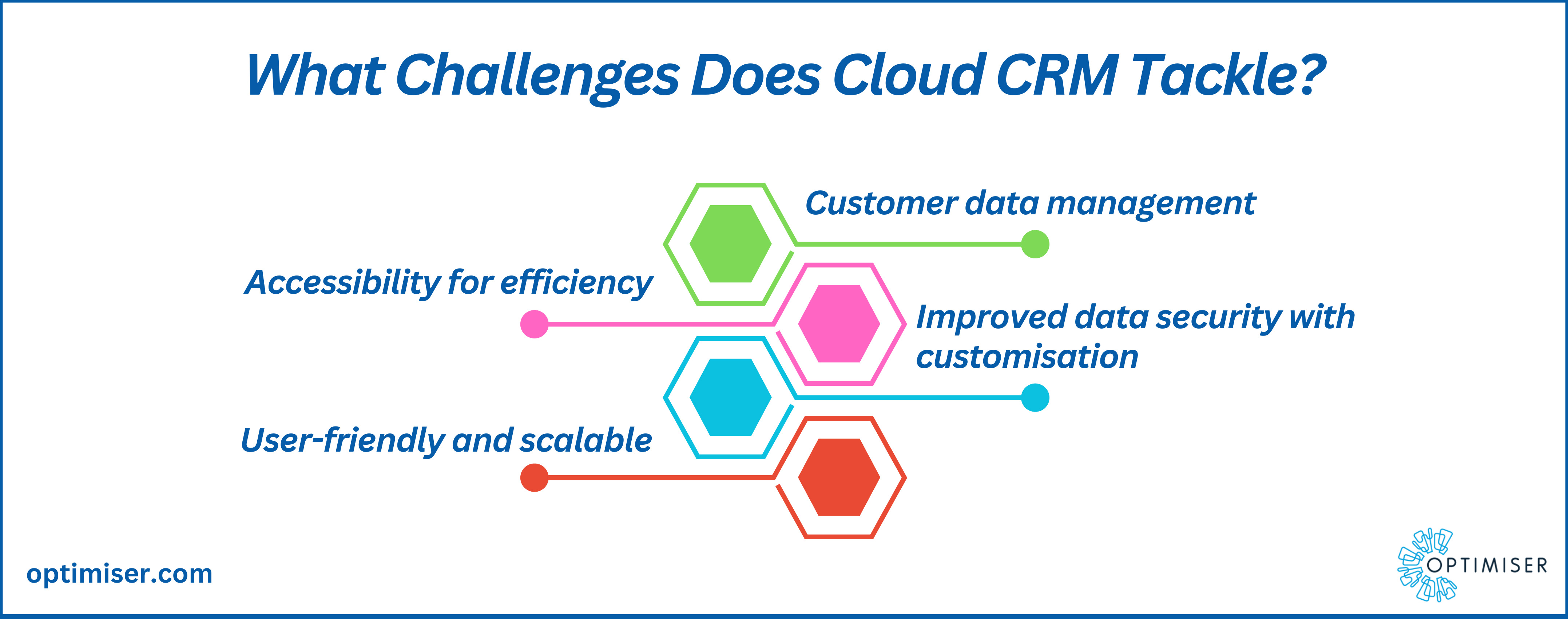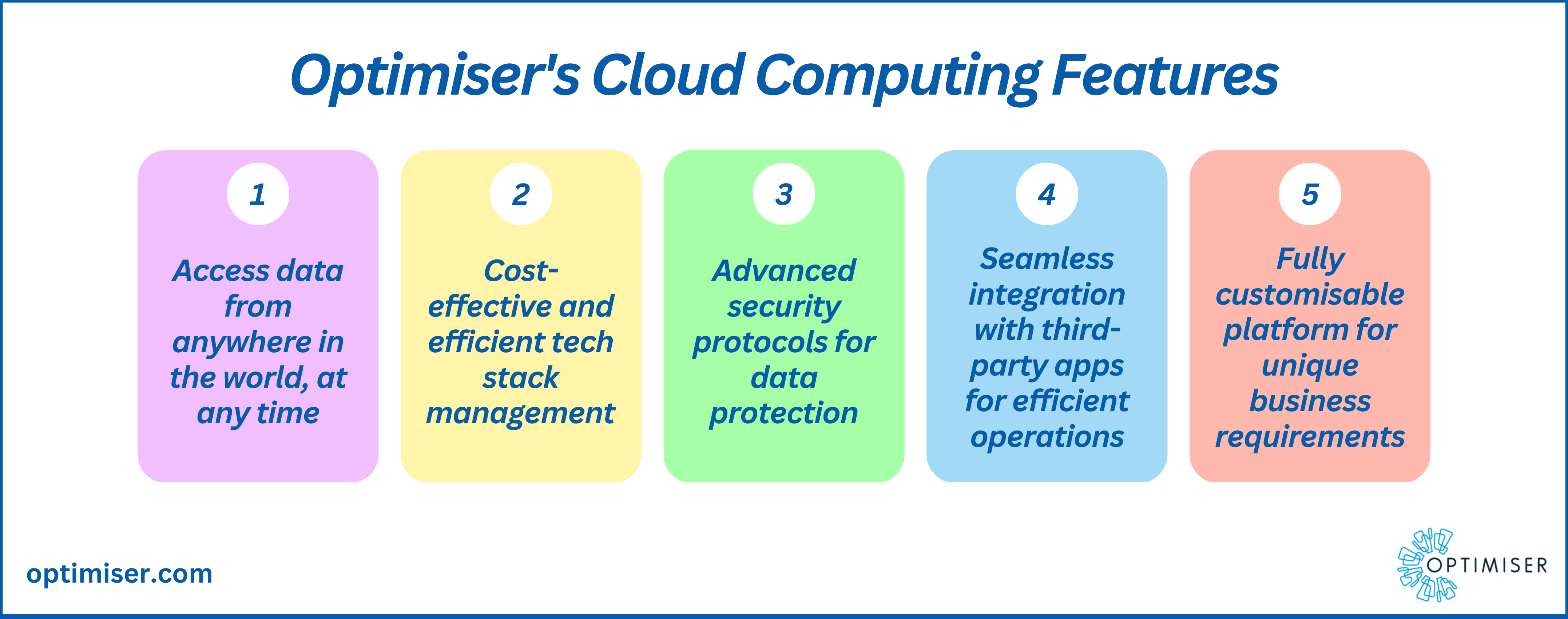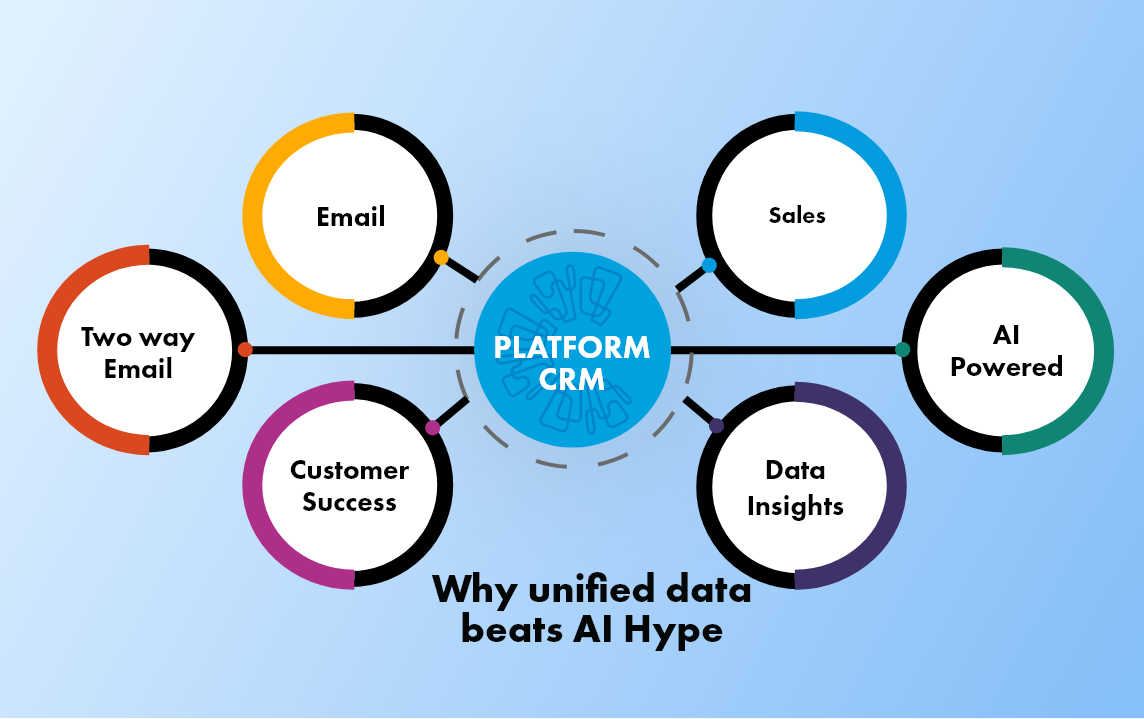
Revolutionising Customer Management: The Power Of Cloud CRM For Small Businesses
A Cloud CRM is a web-based application that allows businesses to manage their interactions with customers and potential customers. It is a software-as-a-service (SaaS) offering, where the software is hosted and maintained by a third-party provider, and accessed through the Internet.
A cloud computing platform provides a central location for businesses to store customer information, such as contact details, communication history, sales history, and other relevant data. This information can then be used to track customer interactions, automate sales processes, and provide personalised customer experiences.
Benefits of Cloud CRM
- Scalability
Cloud CRM can easily scale to meet the needs of growing businesses. As a business grows, its customer database grows, and cloud CRM can handle this growth seamlessly. Additional storage, features, and functionalities can be added as needed.
- Affordability
Cloud CRM is typically more affordable than on-premise solutions because they do not require expensive hardware, installation, and maintenance. In addition, cloud CRM systems are usually sold as a subscription service, so businesses can choose a plan that meets their budget and requirements.
- Accessibility
Cloud computing features include accessibility. They are web-based and can be accessed from anywhere with an internet connection, making it easy for sales teams to update and access customer data on the go. This allows salespeople to be more productive and responsive, improving customer satisfaction.

- Automation
Cloud CRM can automate many sales and marketing tasks, such as lead generation, lead scoring, lead nurturing, and email marketing. This automation helps sales teams focus on closing deals and driving revenue.
- Integration
Cloud platforms can easily integrate with other business applications, such as marketing automation tools, accounting software, and project management tools. This integration creates a seamless flow of data between systems, making it easier to manage customer data and improve operational efficiency.
- Collaboration
Cloud CRM make it easy for sales teams to collaborate with each other and with other departments within the organisation, such as marketing and customer service. Teams can easily share customer data and collaborate on deals, increasing efficiency and improving communication.
- Analytics
Cloud CRM offer advanced analytics capabilities that allow businesses to analyse customer data and gain insights into customer behaviour, preferences, and needs. This information can be used to make data-driven decisions and improve customer engagement.
- Security
Cloud CRM typically offers high levels of security to protect customer data. They employ advanced security measures such as data encryption, firewalls, and intrusion detection to prevent unauthorised access to sensitive data.
Why Should Businesses Adopt Cloud CRM Solutions?
Improving customer engagement: Cloud CRM provides a centralised location to store customer data, which can be used to track interactions with customers, personalise customer experiences, and improve customer engagement.
Streamlining sales and marketing processes: A cloud CRM system can automate sales and marketing processes, such as lead generation, lead scoring, lead nurturing, and email marketing. This automation helps sales teams focus on closing deals and driving revenue.
Increasing productivity: Cloud CRM provides easy access to customer data from anywhere, at any time, making it easier for sales teams to stay organised, collaborate, and be more productive.
Enhancing data security: Cloud CRM systems offer high levels of security to protect customer data. They employ advanced security measures such as data encryption, firewalls, and intrusion detection to prevent unauthorised access to sensitive data.
Scaling with business growth: Cloud computing CRM can easily scale to meet the needs of growing businesses. As a business grows, its customer database grows, and cloud CRM systems can handle this growth seamlessly. Additional storage, features, and functionalities can be added as needed.

Also Read: The Need For Progressive Web Applications
Reducing costs: Cloud CRM are typically more affordable than on-premise solutions because they do not require expensive hardware, installation, and maintenance. In addition, cloud CRMs are usually sold as a subscription service, so businesses can choose a plan that meets their budget and requirements.
Improving collaboration: Cloud CRM makes it easy for sales teams to collaborate with each other and with other departments within the organisation, such as marketing and customer service. Teams can easily share customer data and collaborate on deals, increasing efficiency and improving communication.
Optimiser's Cloud CRM For Business Growth
Optimiser's cloud computing CRM can be a powerful tool for businesses looking to drive growth. By leveraging cloud computing characteristics, businesses can improve customer engagement, streamline sales and marketing processes, and increase productivity. The system's scalability and affordability make it ideal for businesses of all sizes, allowing them to easily expand and adapt to changing business needs. With the system's automation capabilities, businesses can automate many routine tasks, freeing up sales teams to focus on closing deals and driving revenue. The system's analytics capabilities can help businesses gain insights into customer behaviour, preferences, and needs, allowing them to make data-driven decisions and improve customer engagement.
Summary
Cloud CRM platforms can help businesses improve customer engagement, streamline sales and marketing processes, and increase revenue. It offers numerous benefits, including accessibility, scalability, affordability, automation, integration, collaboration, analytics, and security.

30 days free trial. No credit card required
 One powerful platform
One powerful platform
 Simple to use
Simple to use
 Comprehensive
Comprehensive



